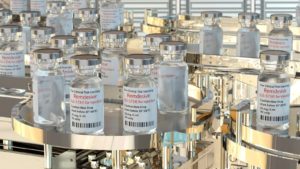“Unlike broad-spectrum antibiotics, which can be used to treat a wide range of bacterial infections, drugs that work against one type of virus rarely work at treating other viruses.” That, in a nutshell, is why we don’t have a penicillin for Covid-19.
Also because “viruses are much more diverse than bacteria, including in how they store their genetic information (some in the form of DNA and some as RNA).” Thus, “Unlike bacteria, viruses have fewer of their own protein building blocks that can be targeted with drugs,” a BBC science article says (read it here).
In addition, “For a drug to work, it has to reach its target. This is particularly difficult with viruses because they replicate inside human cells by hijacking our cellular machinery. The drug needs to get inside these infected cells and act on processes that are essential for the normal functioning of the human body. Unsurprisingly, this often results in collateral damage to human cells, experienced as side-effects.”
Plus, “viruses mutate quickly. So even when a drug is developed, the ever-evolving virus might soon develop resistance towards it.”
On top of that, “A further problem in fighting viruses is that several – such as HIV, papillomavirus and herpes – can switch into a sleeping mode. In this state, infected cells don’t produce any new viruses. The genetic information of the virus is the only viral thing present in the cells. Drugs … do not have anything to be active against, so the virus survives.”
Phew. Now you know why we can’t cure the common cold, only treat its symptoms.
 We have highly effective vaccines to prevent Covid-19, and don’t have effective drugs to treat it. Do whatever you want with that information.
We have highly effective vaccines to prevent Covid-19, and don’t have effective drugs to treat it. Do whatever you want with that information.
Photo: Clinical trials have shown remdesivir “has only a limited effect” in treating the Covid-19 virus.